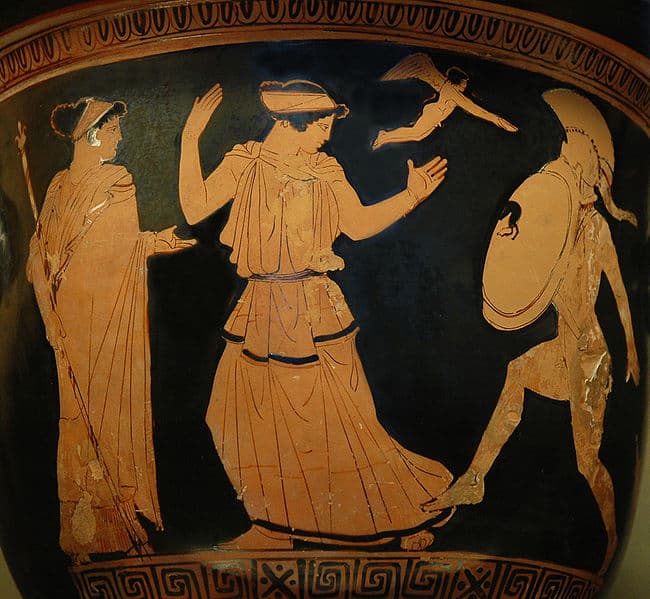The Shining
I just read All Things Shining and I'm not sure what to make of it. The subtitle gives a better indication of its content: "Reading The Western Classics To Find Meaning In A Secular Age." Actually, it's more a whirlwind tour of Western thought, concentrating on a handful of classics, to show us how we got to where we are, and to suggest certain ways we might fight against today's nihilism.
The book is written by two philosophy professors, though it's done in popular style. They look at a modern writer David Foster Wallace (who killed himself) and see despair, even as his work seems to be a fight against it. So they go back to the beginning of the West to discover out how we got here.
They start with Homer (naturally). He was writing (or singing) in a polytheistic world, and human actions were outward directed. People could give themselves over to whichever god (symbolic of a type of feeling) prevailed at the moment. Centuries later, there was Aeschylus, who saw the gods differently--in fact, the Oresteia is the story of a clash of the gods. The old gods, like the Furies, who represent the emotions that take over people, and the new Appollonian gods who represent higher, more rational thought. Ultimately, Athena solves the problem by honoring the old gods while making way for the new, which leads to a patriotic celebration of Athens.
The next big change, of course, is Monotheism, which Christianity brings into the system. Human lives are still outward directed, but in a different way. Augustine tries to adapt Plato to Christianity and helps create a view of what humans should desire. Then Aristotle is reintroduced to the world and Aquinas adapts him to Christianity. This worldview is explicated by Dante, where everything and everyone has its place, and our job is to avoid the false and wicked urges. In such a world, autonomy is a danger--we must learn not to replace our duties with our own wants and desires.
Then comes Descartes (the authors see him as influential in his own way as Jesus) who brings back our inner state as the center of who we are and should be. Now we create meaning. Kant then makes our own autonomy the center of morality. Nietzsche sees that we no longer believe that outer sources control our world, or morality, and that we must use our new freedom to move forward. But the loss of the gods (or just one) can leave humans adrift, and fearful that there is no ultimate meaning, as Melville demonstrates. A quick trip through Heidegger and we're back to David Foster Wallace.
The author's solution is to find excellence all around us--shining things. We must get beyond our own selves, consciously investigating what we're doing, and become a part of the new activity. (For example, you may work on a great golf swing, and when you get it, it can be an amazing feeling--but if you think too much about it you may lose it.) We have to beware of the scylla and charybdis of being too rational that we never feel anything higher than ourselves, and giving into moods that can sweep over us from outside, which may be nice at a baseball game, or a Martin Luther King speech, but not at a fascist rally.
I have no idea if any of their analysis, much less their solution, is sound. The odd thing to me is for a book about the West, their ideas end up seeming pretty Eastern.



1 Comments:
The question is are people really different in the past, or are they the same with some minor changes. If they're the same, maybe we can understand what it was like in various times, but if we're truly different it's probably impossible to get into an anicent mindset.
Post a Comment
<< Home